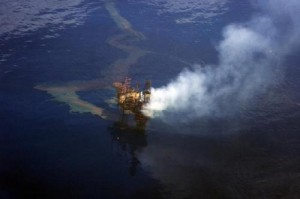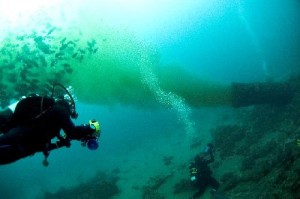What the Ocean Does for Our Planet and Us
While nearly half of the world’s human population lives within 50 miles of a coast, all of us depend on the ocean and the resources it provides, whether it be for food we eat or the oxygen we breathe. The ocean provides invaluable benefits and services:
- Climate Regulation: Ocean dynamics strongly affect climate and weather patterns, transferring heat from the equator to the poles and moderating carbon dioxide levels in the atmosphere.
- Food: Seafood is a major food staple and protein source. Per capita consumption of seafood is increasing around the globe.
- Economy: Ocean-related industry provides revenue through fishing, seafood distribution, tourism, recreation and transportation. Seafood has become one of the most exported items in the global market today.
- Transportation: Ocean-bound shipping accounts for more than 90 percent of global trade.
- Medicine: Biomedical products derived from marine plant and animal sources provide important medicinal products and health benefits.
- Recreation: The often-intangible benefits derived from spending time in and around the ocean are largely immeasurable.
Ocean Pollution and Human Health
Humans have developed and maintained strong ties with the marine environment for health, survival and recreation, utilizing the seemingly endless ocean resources available to us. But ocean resources and its resilience are finite. Unfortunately many of our daily activities, whether they intimately involve the ocean or take place hundreds of miles from the nearest coast, threaten the ocean. Our actions have a myriad of both direct and indirect negative effects.
- Land-based pollutants: Waste originating on land such as plastics and electronics account for 80 percent of all marine debris.
- Toxic chemicals: Chemicals that have been implicated in cancer, developmental problems and other health issues end up in the ocean.
- Energy consumption: The burning of coal, accounting for roughly 50 percent of U.S. energy use, releases toxic mercury that ends up in the ocean and the fish we eat.
- Pharmaceuticals: The Associated Press reports that U.S. hospitals and long-term care facilities alone flush millions of pounds of pharmaceuticals annually down the drain.
- Oil spills: An estimated 706 million gallons of oil are leaked from ships or wash from land into the ocean each year.
- Carbon emissions: The oceans have absorbed about 50 percent of carbon dioxide from our carbon emissions, resulting in a 30 percent increase in ocean acidity since the Industrial Revolution.
- Not only are we contaminating the ocean and its inhabitants, we are ultimately contaminating ourselves. Our health is directly reliant upon the health of the ocean for our most basic sustenance—food and water.
Living Sustainably While Living Healthy
SeaWeb helps mitigate ocean pollution by sharing and supporting safe, sustainable and responsible ways to interact with our marine environment.
SeaWeb’s KidSafe Seafood program provides guidance for selecting healthy, sustainable fish for child consumption. KidSafe Seafood informs parents of the dangers of eating mercury- or PCB-laden seafood while providing sustainable, healthy alternatives.
To learn what you can do to live a healthy and sustainable lifestyle while helping the ocean, read SeaWeb’s tips on ways to get Get Involved. For more information, you can visit:
The National Academies 2009 report Oceans and Human Health
Woods Hole Center for Oceans & Human Health
Harvard Medical School’s Center for Health and the Global Environment
Pacific Northwest Center for Human Health and Ocean Studies, University of Washington
Oceans and Human Health Center, University of Miami
Pacific Research Center for Marine Biomedicine, University of Hawaii, Monoa
NOAA’s Oceans and Human Health Initiative (OHHI)

